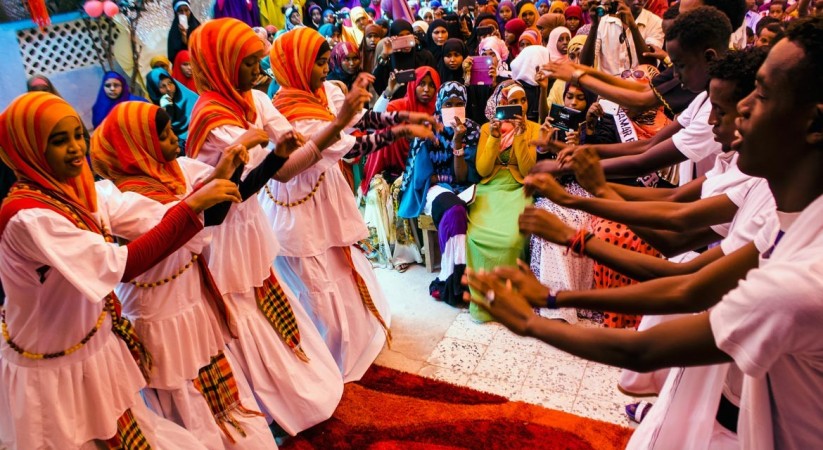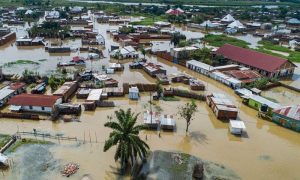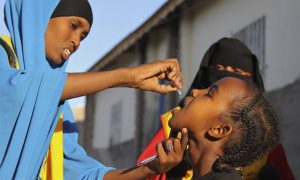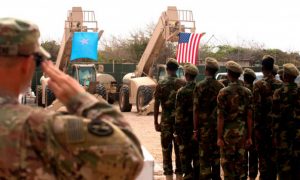
Mogadishu, 12 October 2015- After almost a quarter century since the fall of the Mohammed Siad Barre dictatorial regime and the collapse of the national government, Somalia is rising from the ashes.
A visitor to the capital Mogadishu will be pleasantly surprised to find a modern and working airport named after the country’s first president Aden Abdullah Osman Daar.
True, the city in many ways resembles a country that is recovering from war. But signs that Somalia, which was brought to its knees in the 1990s, is making tremendous strides towards normalcy are everywhere.
Al-Shabaab was officially kicked out of Mogadishu in 2011 by the African Union forces (Amisom) concentrating their base in the south of the country from where they engage in sporadic attacks and assassinations in the capital.
It is at the airport that a visit first senses that things are getting better. Here, flights land and take off from the new airport almost every hour from 6 am to 6 pm when it closes down, not for security concerns, but logistical issues.
After the collapse of the Somali government in the 1990s, the country lost most of its experts including air operators. Aden Abdullah international airport is under the management of the International Civil Aviation Organisation (ICAO) officials as the country builds capacity to take over.
SENSE OF ORDER
On landing at the airport, one is welcomed with a sight of residents on mobile phones. This is despite the fact that the country does not have a regulator in place. But the country has two main mobile companies, Hormuud and the National Link, which more or less cover the entire country. They even have mobile money transfers.
The road network is not anything to write home about, but the trunk roads are pretty passable with the federal government determined to make things work in the capital before moving to other parts of the country.
Britain and China are among the world powers that have embassies in Mogadishu while Kenya is constructing its offices not far away from the airport.
Uganda, Burundi and Ethiopia, who are among the countries that have contributed troops to Amisom, also have embassies in the Somali capital.
Amisom has brought some sense of order in the vast country and this is beginning to pay dividends. Unlike in the past when moving around Mogadishu at night was tantamount to getting yourself shot, Amisom soldiers now patrol the streets for 24 hours, allowing people to carry out their businesses unperturbed.
Along the long coastline, Lido beach stands out as men, women and youth enjoy the ocean breeze as they while away. Some take a dip into the water while others play beach football. Clearly, the good days when residents would enjoy beach life are back. Beaches were no-go zones not too long ago.
Somali leaders under President Hassan Sheikh Mohamud – who has been in office since 2012 – have brought a sense of belief among the population together with Amisom. They are quick to concede that the country still has challenges but they are determined to address those challenges.
Next year, the country is expected to hold a General Election. But for the election to be considered a success, a majority of its citizens must participate. But only 50 per cent of the adults have a national identity card. It is a worry for FGS on how they can navigate this minefield.
For the first time in 25 years, the International Monetary Fund (IMF) sent a mission to Somalia early this year to review the country’s economy that is basically driven by telecommunications, agriculture and construction.
The mission forecast that Somalia’s economy will grow at 2.7 per cent. This is no mean achievement given where this country has come from.
A baseline research carried out by international firm Ipsos/Synovate came up with positive findings that paint a different picture from what most of the world knows.
At least 60 per cent of those polled are positive that Amisom, which has been in Somalia since 2007, will stabilise the Horn of Africa state. The research also established that 60 per cent of the population is youthful and below 34 years while those above 55 years are a mere seven (7) per cent.
.
_____________________________________________________________________________________
Xafiiska Wararka Qaranimo Online | Mogadishu, Somalia
_____________________________________________________________________________________Advertisement
_____________________________________________________________________________________







